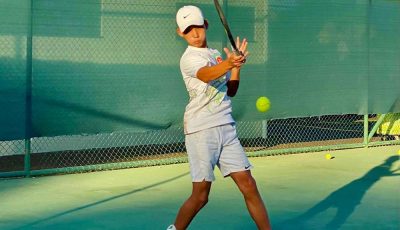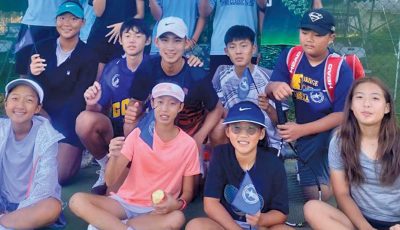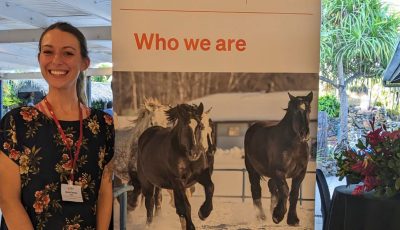The differently abled
“It’s the story, dude, that determines behavior,” a colleague says. Story, it is, the old conundrum of perspective, whether one sees a bottle half empty or whether one quenches thirst on what is half full! The word “paradigm shift” is used, from being a victim of circumstances to being master of one’s destiny.
I have two kids diagnosed with ASD, now 23 and 20, but my earlier indifference to their care as preferred by my spouse’s desires/anxieties while she was a USAID officer in D.C. when they were still young cost me a marriage. One of my grandsons is super-active, a candidate for the Asperger end of the spectrum. I must carry some “differently-abled” genes in my blood.
(Incidences started with 1 in every 1,000 in ‘94, 1 in 400 in ‘02, 1 in 100 in ‘07 and now the high-low end of estimates is 1 in every 45-68 by Atlanta’s Centers for Disease Control.)
I changed the term “disabled” to “differently abled” before colleagues at NMPASI (protection and advocacy) for the simple reason that “disabled” implies absence of “ability” as “dishonor” means, inter alia, “without honor.”
In a new world of earthrise consciousness where we know we are in the same planet together, and where inclusion is a matter of human rights and fundamental freedoms for everyone, making earthbound commitment a matter of coordinative care, to recognize those who are historically excluded as differently abled is to acknowledge their unconditional worth like everyone else without implying that somehow they are deficient.
I attended Dr. Cecilia Lamkin›s organized Disability Awareness workshop with guests from Fiji›s Pacific Disability Forum group (pacificdisability.org), Anna and Setaraki Macanawai, and Pohnpei Consumer Organization and FSM National Disabled Person Organization’s president, Nelbert Perez, a UCC pastor. In attendance were members of local advocacy groups (e.g., NMPASI and Voice), representatives of CNMI government and non-government programs, and individuals who came on their own cognition.
The Macanawai-Perez tandem presented models of “disability” approaches, got us through the eight articles of CRPD, the UN Convention on the Rights of Persons and Disabilities. The United States shaped and guided the Convention’s passage in the UN and is a signatory to it, but the U.S. Senate failed to ratify the treaty in 2012. They also walked us through organizing people with disabilities and put a heavy beat on the “inclusive” nature of disability development.
The United States does have the Individuals with Disabilities Education Act as federal law enacted in 1990 and reauthorized in 1997 and 2004. The No Child Left Behind Act of 2001, signed into law in 2002, included Title I, the flagship aid program for disadvantaged students. As a PSS teacher (2003-2009), I was made familiar with these. So even if the U.S. has yet to ratify the CRPD, it has governmental and non-governmental programs on the disability community (not enough but we are working on it!), particularly in matters of provision of services, advocacy and the promotion of individual’s rights.
The main address to me of the workshop was on Celia the organizer and Serataki the Fijian guest. Dr. Lamkin has had five heart surgeries on record and she managed to stay on track even while feeling faint over a rapid ascent of blood pressure. CEO Macanawai, born with sight but blind at 17, used his laptop and a projector to do his presentation with confidence and efficiency that to me was a demonstration of how we take for granted the ability of those we label disabled. He is effectively able!
The UN Pacific Disability program maintains an impressive website worth the visit. The “Pacific” perspective itself is European. Magellan’s voyage past Patagonia to the Straits went into calm waters unencumbered all the way to Guam, named the waters’ currents and waves so, though they are hardly “pacific.” In a sense, the list of political entities in the Forum are former colonies of European states, Fiji of Britain, and Pohnpei of Germany assumed after WWI by Europeanized Japan of the Meiji restoration, and later, the UN trusteeship with the U.S. military as guardian.
We know that the General Assembly of the UN is at best symbolic, at worst a farcical rigodon de honor. Nation states are colonial inventions, not viable to define personal allegiances. The permanent members of the National Security Council call the shots; without China and Russia, we would be dancing the two-step do-si-do all night! To ask why the CNMI and Guam, Commonwealth and territory of the U.S. respectively, are not separately listed among the entities in the Pacific Forum is to ask a misplaced question.
I’d rather start a Global Disability (differently-abled) push regardless of nations. The 15 percent of the world’s population born that way cannot be excluded from innate rights. On that note, I step in and out of clashing bamboo sticks all night. Tinikling, anyone?



























